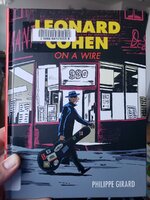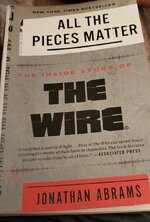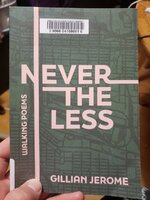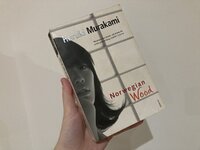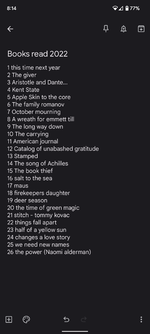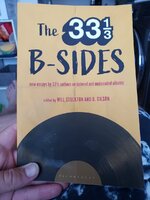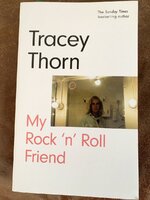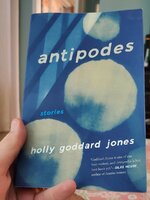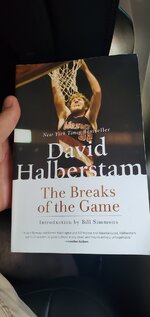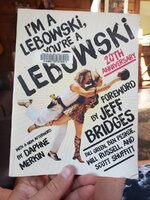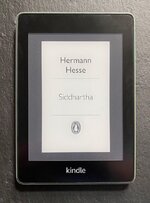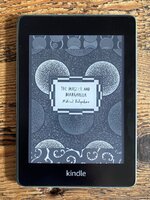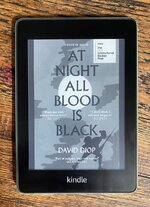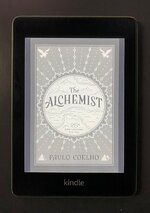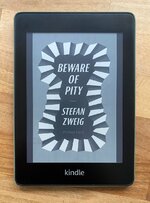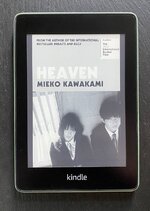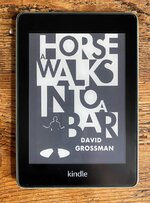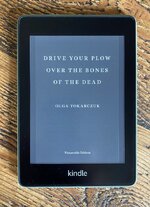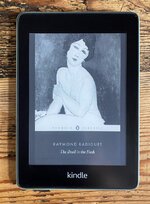Book 17: A Swim in a Pond in the Rain by George Saunders (and Chekov and Turgenev and Tolstoy and Gogol)
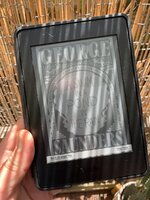
I just finished a writing class, so picking this one up was a great move for me. For context: the author George Saunders, like many authors, is also a writing/lit teacher. One of his classes focuses on Russian short fiction. In this book he collects seven short stories, following each with lengthy commentary on what about the story he teaches his students, what value he sees in the stories and how he applies those lessons to his own writing.
I have limited experience with Russian fiction, but I've enjoyed what I've engaged with; Nabokov came a bit later than those collected here, but I've always enjoyed his mastery of prose and his version (at least I think it is) of what Saunders identifies in a Gogol story as "skaz," a storytelling technique of using dialect and slang in narration to take what seems like third-person omniscient narration and get the reader to question who actually is telling the story. As Saunders puts it, "the effect is that we start looking askance at the narrator ('Who is this guy?') and distrusting his narration." You start to notice that the narrator focuses on specific aspects of the story, that certain details seem more interesting than details
you yourself would focus on. It lends this air of absurdity to the stories, as well as character.
After reading this one, I really want to pick up some similar books; Saunders does have the benefit of a very conversational voice while engaging in literary analysis, but I'd love to see other works broken down in a variety of perspectives.
Book 18: When She Woke by Hillary Jordan
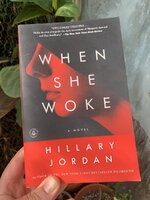
This was a book club read, and I always feel a pang of guilt when I have problems with a book someone else picked, but...I have problems with this book.
The premise is that in the (unspecified) near-future, America has become a religious state (though this isn't quite shaded in, and the author overuses the nefarious "they" when explaining historical events; obviously some religious dogma has been codified as law and there is room in the halls of government for religious leaders, but it's also made obvious some people openly and comfortably hold other beliefs and some behaviors that are prohibited by religion appear to be permissible by law). Furthermore, for...budgetary reasons...criminals are no longer incarcerated (except they are; for a month you're kept in a prison and your actions are televised for all to see, though this never comes up after the MC is released from said prison), and rather their skin is dyed, different colors depending on the nature of your crimes, and then they're let out into the world to be...well, to be treated like shit and die (presumably, as the author hits the ejector seat when it comes to exploring actual daily life as a "chromed").
The story itself follows a woman who has an affair with her pastor, becomes pregnant, and chooses to have an abortion. She's immediately caught, arrested, and dyed red; all murderers are colored as such, and as Roe has been overturned (this book was written in 2011, and I'd say living in the predicted dystopia does the fictional one few favors). If you've noticed this falls somewhere between The Handmaid's Tale and The Scarlet Letter, you're spot-on; the author even invites comparisons to the latter with such subtle moves as naming the main character Hannah Payne.
I'd sum up my issue with the book being its lack of full thought in fleshing out the story as well as its disinterest in the thematic questions it raises; if the author had focused on one, it may have been easy to overlook the shortcomings of the other. For example, after a brief stint in a religious halfway house (where, as is the case across the book, characters are either full-on monstrous religious zealots or sincerely humane atheists (I'm agnostic, but broad-brush painting of the religious world gets under my skin)), Hannah is cast out into the world to fend for herself. Her first thought is to track down a friend from the halfway house who left earlier, but she forgot to hang onto that friend's phone number. So she goes to her sister's house; she knows her brother-in-law disapproves of her, but she knows he'll be at work, so she risks going. Five minutes after reuniting with her sister, the bil bursts in. Then
and only then Hannah remembers: every criminal is implanted with a tracking chip and
anyone can just google her location. The bil kicks Hannah out, and
then and only then does Hannah realize she can just google her friend from the halfway house. The tracker wasn't there when Hannah needed to initially find her friend; it's there because the author needed a reason to get the brother in-law in the door at that moment to cause conflict in the story.
Now the tracker brings up some good philosophic points: what would that be like, to have zero privacy? To be in a world where anyone who disapproves of your crime could look you up, find you, and hurt you? Where people didn't care the circumstances of your crime, and consider you no better or worse than anyone else branded the same as you. Gee, isn't that similar to the present-day sex offender registry, which doesn't differentiate between a serial predatory child molester and someone who had consensual sex with their 16 year-old partner when they themselves were barely 18? And doesn't the broad categorization of crimes into color-codes mean there would be striation within the criminal community (both between colors, and within them), internal prejudice and bias within a group our own prejudices and biases cause us outsiders to consider monolithic? Gee, that would be an interesting critique/investigation of the present prison/justice system, as well as our own held biases. The author mentions communities and ghettos of "chromed" people trying to get by, and while it raises questions and ideas for the reader, the book rejects them in favor of a kidnapping/roadtrip as Hannah is carted off to Canada, but not before hooking up with her pastor one more time.
Anyway, that's my rant; I'm trying to get the bile out before we meet to discuss it. My book club is pretty evenhanded about what we read, and it takes a true piece of garbage for us all to say "this is garbage." I don't want to harsh anyone's mellow if they found genuine enjoyment in it, or appreciated the thematic content it's stolen from other, better books.
Book 19: Lapvona by Otessa Moshfegh
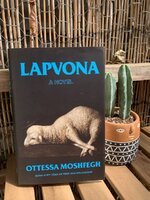
I never thought I'd call an Otessa Moshfegh book a "palate cleanser," but after When She Woke, I'd go so far as to do so here. I've read her collection Homesick for Another World and the novel My Year of Rest and Relaxation, so I knew to expect dark humor, existential despair, and lots of weird bodily functions.
Lapvona is set in a medieval eastern european village, and focuses on Marek, the son of a shepherd. After a shocking tragedy, Marek's father trades him to the lord/governer of the town, Viliam. Through Marek's misadventures, we learn more about the dynamics of the town, and how religion, nature, life, death, magic, and disease all intermingle in such a tiny society.
The story is pretty deliberately told like a fable, and I really enjoyed how it unfolded. Moshfegh would focus on a character, fleshing out their inner life, their superstitions and beliefs, and how they navigate (or help create) such a harsh and cruel world. The introduction of each new character has the effect of adjusting how you felt about the previously-introduced ones, and the contrasts between them all really help explore how a person develops their own personal religion, and what external influences can internally upheave such dogmas.
After reading When She Woke, where the main character is religious by default and goes through an intense spiritual trial without really examining where her beliefs came from (the main internal conflict is "I'm trying to be good, but people are treating me like I'm bad"), it was actually refreshing to read a story about a disfigured shepherd's son who believes being whipped by his father will bring him closer to God.
Overall funny and tragic; unless you've been previously put off by Moshfegh's stories, I'd give it a recommend.
